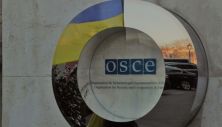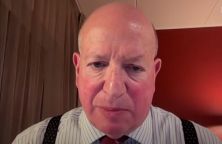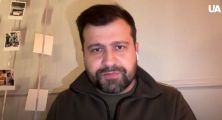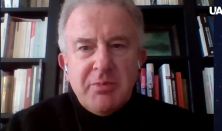Indian Prime Minister Narendra Modi discussed the situation in Ukraine by phone with the President of the United States, Joe Biden. He also had a telephone conversation with Putin.
All about Ukrainian-Indian relations, the place of the New Dehli in global geopolitics and the influence of Modi on the Russo-Ukrainian war in an interview with Oleksandr Sushko, Executive Director of the International Renaissance Foundation.
— The first question. Narendra Modi was in Kyiv and expressed support for Ukraine’s territorial integrity. Can we say that India is no longer an ally of Russia and has shifted to a more neutral stance, or even become a partner of Ukraine?
— It’s a complex question because the world isn’t just black and white. Countries don’t simply fall into categories of allies and enemies. Many nations try to pursue their own interests and find what they consider the best solutions for themselves. India is one of the leading countries in this group, striving to remain unaligned with either side in what they view as a conflict.
This approach is deeply rooted in India’s foreign policy, dating back to its independence in the 1940s. During the Cold War, India was a leader of the non-aligned movement, avoiding close ties with either the Soviet bloc or the West. Today, they continue this tradition. While this stance might be disappointing for us and doesn’t inspire enthusiasm, we must accept it and work on building our own policy toward India.
Modi’s visit to Kyiv is a significant achievement for Ukrainian foreign policy. There has never been a visit of this level to Ukraine since its independence. The fact that a leader from one of the major non-Western countries visited Kyiv during such a difficult time is a positive sign.
It’s also noteworthy considering the criticism Ukraine expressed after Modi’s visit to Moscow in July, which coincided with a deadly Russian attack on Ukraine, including the bombing of a children’s hospital “Okhmatdyt”. Despite the strong criticism from President Zelenskyy, Modi still decided to visit Kyiv, which is a good sign.
However, India will likely continue its foreign policy of maintaining a middle ground. They don’t see the conflict in the same terms as we do. While we view Russia as the aggressor and Ukraine as the victim, India sees it as a conflict between two parties that should be mediated and resolved through negotiation.
In this context, India positions itself as a potential mediator, maintaining communication with both sides.
We must understand that India is likely to continue this approach. While it’s important to maintain our criticism, particularly because equating the victim with the aggressor is not in line with the UN Charter, we must also engage with India and try to persuade them to avoid actions that could be seen as supporting Russia.
— India positions itself as a leader of the global South and is currently the largest importer of Russian crude oil. Do you see any possibilities for Ukraine to leverage Indian influence, perhaps by offering something to attract their goodwill?
— You’re correct. Economically, India is one of the biggest beneficiaries of the conflict between Ukraine and Russia, mainly because they are purchasing Russian oil at significant discounts. This is Russia’s way of keeping India on their side. Ukraine, unfortunately, doesn’t have similar economic levers to offer India.
However, we can explore other strategic avenues. India’s main geopolitical rival is China, which is a close ally of Russia. Ukraine, together with its Western allies, could potentially use this dynamic to influence India. If the Russian aggression against Ukraine strengthens the Russian-Chinese partnership, it could severely impact Indian interests.
India is not interested in a Russian victory in Ukraine, and this fact can be used to our advantage.
Moreover, while India is unlikely to join Western sanctions against Russia, they also don’t want to become a target of those sanctions.
Over time, as Western sanctions intensify, India’s interests could be affected. This reality might limit the benefits India is currently gaining from its relationship with Russia.
That’s why the “honeymoon” between India and Russia might not last long—it’s more of a tactical relationship than a long-term alliance.
This may also be one of the reasons why Modi decided to visit Kyiv.
Read also: We need to redesign the whole system UN Security Council, – an interview with Alexander Khara










